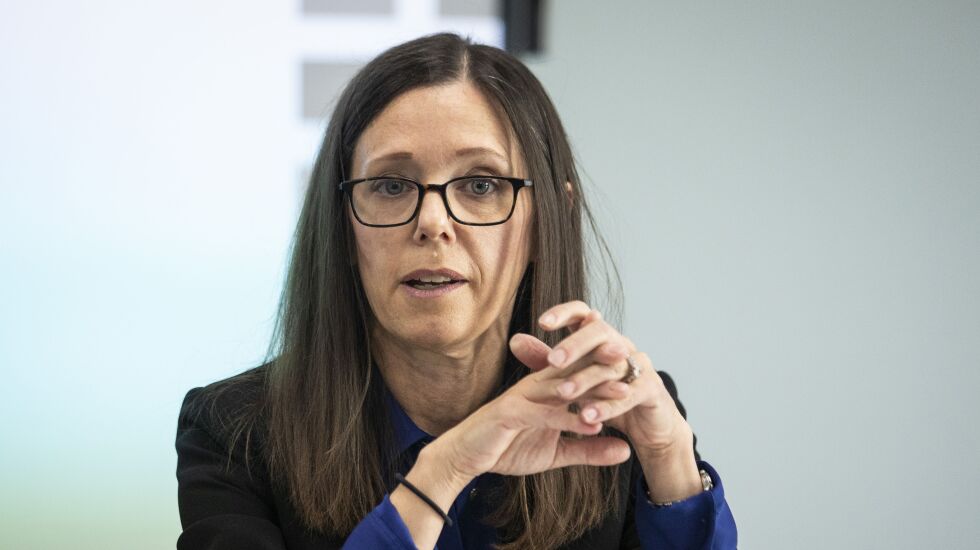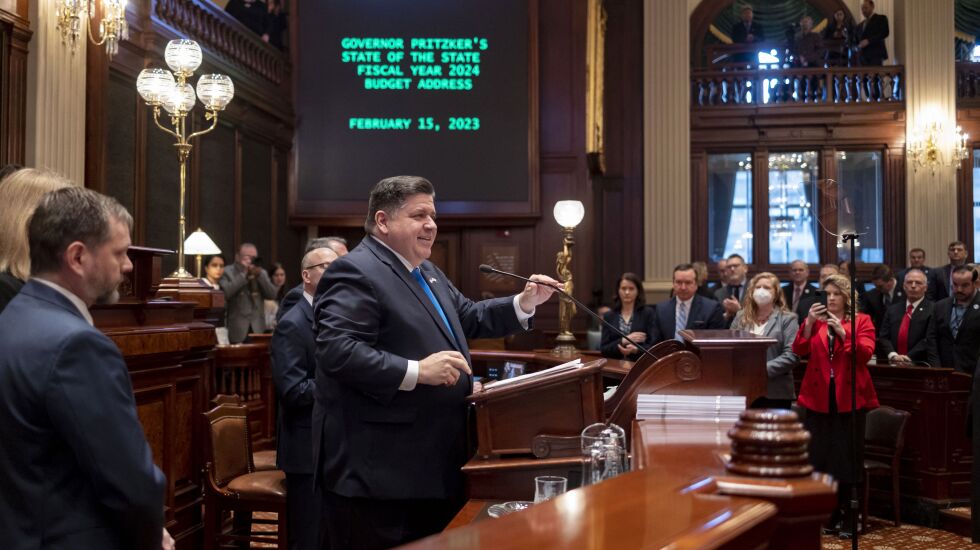
Gov. J.B. Pritzker on Friday plans to release a comprehensive report about improving behavioral health care for children in the state — penned largely by a Chapin Hall child welfare expert with research from multiple state agencies and more than 700 stakeholders.
Pritzker announced the Illinois Children’s Behavioral Health Transformation Initiative in March 2022 to try to get agencies to work more closely together to help children with significant behavioral health needs — and to help parents, guardians and family members experience more ease, and transparency, in getting kids care.
The report offers 12 recommendations for transforming the state’s system — including improving information sharing and coordination between child and adult care systems across agencies.
The initiative’s director, Dr. Dana Weiner, in 2019 also helped conduct a six-week review of an embattled Illinois Department of Children and Family services that found a lack of collaboration between investigators and case managers and a gap in historical information about allegations.
“Hopefully this plan will make it easier for families to access care for young people,” Weiner said of the new initiative. “It will be easier to know where to go. It will take less time to get appointments, and it will be clear what services are available.”
The report found there is no single hub for access to behavioral health care for children, creating a “fragmented system and tangled process.” Those problems are compounded by a workforce shortage, “an eroded continuum of care” and misalignment of the geographic and clinical distribution, the report states, noting it’s led to increased wait times in emergency rooms and psychiatric inpatient units.
In some cases, parents have chosen to give custody of their children to the state in an attempt to secure residential placement or payment for psychiatric services, notes Weiner, a senior policy fellow at Chapin Hall, an independent, nonpartisan policy research center at the University of Chicago.
“Multiple state agencies operate programs that provide services to support children’s behavioral health, but there is minimal systematic coordination and no holistic, developmentally informed approach to meeting youth needs,” Weiner wrote in the 92-page report.
“With no central point of entry to help families navigate, children and families must access services differently across agencies, meet agency-specific eligibility requirements, and maintain access to services with minimal supports.”
Pritzker’s proposed 2024 budget contains a $22.8 million request related to the initiative, including $10 million to expand a program that provides 24/7 services to youth who have been “locked out” of their homes by parents, run away from home or are beyond the care of their parents and are in immediate danger. It also includes $8 million for a resource referral tool, $2 million for pediatric mental health training and $1.5 million for an intake portal for families to easily access information and help.

Weiner has recommended that the state create a statewide resource referral database that can be used on mobile devices so that anybody who comes into contact with a family member can provide a quick referral to services — including clinical services, mentoring or recreational services.
“Parents report that it can be confusing and intimidating to navigate our service system, and the many people who work for state agencies or community based providers, they’re all in this to be able to help families,” Weiner said. “They want their services to reach the people who need them.”
Mental health problems for children were already on the rise when the pandemic hit. And Illinois is, indeed, experiencing a youth mental health care crisis, the report says, with 40% of young people in Illinois who experienced major depressive episodes unable to receive mental health care.
“Certainly the isolation and missed opportunities for social and academic interaction during the pandemic didn’t make things better,” Weiner said. “But I don’t think the pandemic is the sole reason for the increase in behavioral health problems among kids. ... No doubt young people, people of all ages, are still in the process of recovering from the pandemic.”
The report is just the beginning, Weiner said, and as a researcher, she will be looking for indicators to gauge success.
“I want to see shorter wait times for service. I want to see fewer kids hospitalized for psychiatric reasons and certainly fewer kids hospitalized beyond medical necessity. We’re already seeing that,” Weiner said.
“I would want to see increased awareness among parents and families so that if you asked a parent, ‘Do you know where to go for help?’ They would have an answer to that.”







